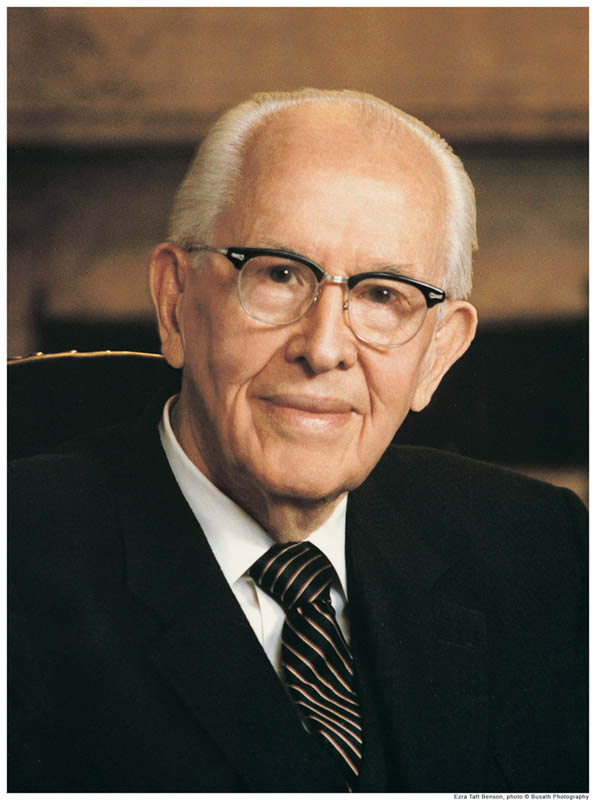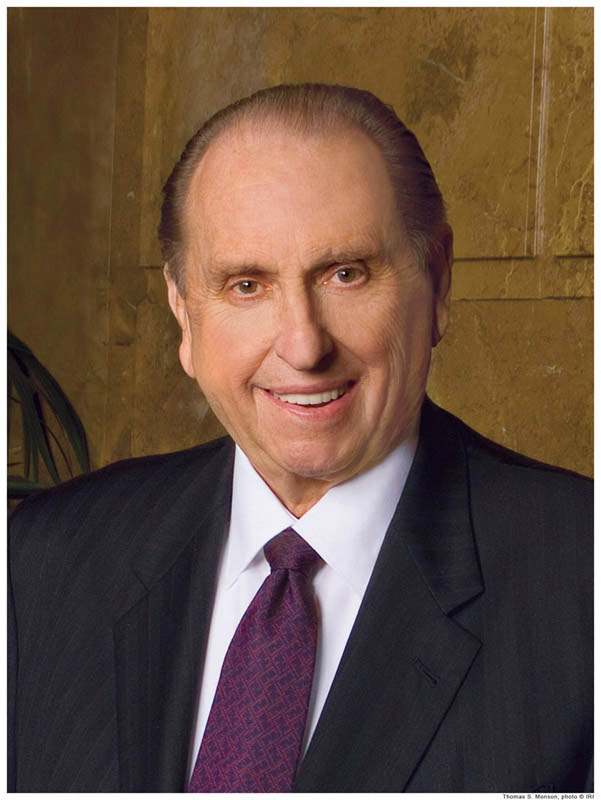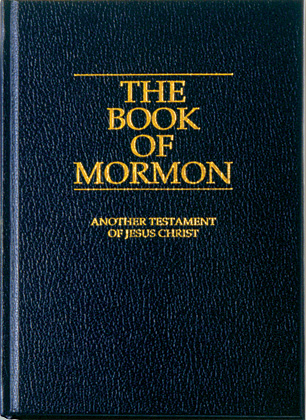Mormonism is often known as a strict religion with many rules. Mormons are often asked why they obey and why they let others decide how they should live.
It is helpful to understand a little about the role of the Mormon prophet and how Mormons view him. With this knowledge, it is easier to understand why Mormons are willing to follow a prophet.
 Students of the Bible are familiar with the concept of prophets. In Old Testament times, God called men to be prophets to deliver God’s word to the people. While each person is able to pray to God privately and learn His word, it would be very complicated to pray about each possible doctrine individually. God also has messages for us we might not think to pray for. A prophet serves as a channel for all the information a person needs to live according to God’s plan. In a world in which many prominent people are willing to guess at God’s word, and to teach their personal beliefs as scripture, a prophet is a sure source of information. Christians want to be certain they are living as Jesus taught, and not as someone else has decided they should live.
Students of the Bible are familiar with the concept of prophets. In Old Testament times, God called men to be prophets to deliver God’s word to the people. While each person is able to pray to God privately and learn His word, it would be very complicated to pray about each possible doctrine individually. God also has messages for us we might not think to pray for. A prophet serves as a channel for all the information a person needs to live according to God’s plan. In a world in which many prominent people are willing to guess at God’s word, and to teach their personal beliefs as scripture, a prophet is a sure source of information. Christians want to be certain they are living as Jesus taught, and not as someone else has decided they should live.
Adam was the first prophet on earth, speaking directly to God to learn truth and to find out what God wanted Him to do. Other prophets soon followed. Of course, there have been times when God withdrew prophecy because the people refused to listen or to honor the prophets, but He has always restored them. Prophets were on the earth to prepare the people for the first coming of Christ, and as we approach the second coming, we naturally need prophets again. For this reason, God restored prophets to the earth in modern times. The second coming requires as much preparation as did the first coming.
But how do the Mormons know their prophet really is the prophet God has chosen for this time? Mormons are taught from early childhood, and, if they are considering becoming Mormon, to ask God who the prophet is. They are instructed not to take the word of anyone on earth—not the Church’s word, not that of their parents, not that of their teachers. All of those sources are a place to be taught the gospel, but no one can give another person a testimony. A testimony can come only from God through confirmation from the Holy Ghost.
“If any of you lack wisdom, let him ask of God, that giveth to all men liberally, and upbraideth not; and it shall be given him,” taught James, believed by many scholars to be the half-brother of Jesus. (See James 1:5) Each person is entitled to turn to God for wisdom and to find out for Himself, from the only source that is completely trustworthy, that the head of the Mormon church is indeed God’s prophet. Prior to baptism, prospective members are interviewed and asked if they have taken this step.
Once a member has gained a testimony of the prophet, they can trust His teachings. However, should they at any time feel uneasy about something, they can again return to God to pray about it. This is why Mormons who have taken the time to pray about their choices are unshakable. They gained their testimonies directly from God.
Some outsiders will warn their members not to pray about which church to join, or about the prophets, because they claim the petitioner won’t know who is answering. Mormons, however, trust God. Because God promised in the Bible that we could ask Him anything and receive an answer, we trust Him to keep that promise. We know God can do anything, including answering us in a way we can recognize as coming from Him. The better we know God, and the more time we spend talking to Him and “listening” to Him, the more familiar His “voice” will become to us. Of course, prayer answers seldom come through a voice, so this is a symbolic way of speaking. It means we can recognize the ways he communicates with us, and understand how to know what the answer is. Mormons ask God because they believe Him when He makes promises.
Having an understanding of the process followed by Mormons to learn whether or not God speaks to us through prophets as well as individually, you are ready to understand why Mormons are willing to take direction from this prophet. You may already understand it, if you are a person who always strives to do what God wants you to do.
Mormons are taught the gospel of Jesus Christ as it is revealed in the scriptures. These scriptures include both the Old and New Testaments, as well as scriptures revealed through prophets in modern times, including the Book of Mormon and also as it is revealed to the prophets.
These scriptures teach us both the penalties for ignoring God and the blessings that come from obedience. We’ve seen throughout history that fear of punishment is not enough to make people obey God. Noah relentlessly taught the gospel to the people, and warned them of the upcoming flood. Despite this, they chose to ignore his warnings and continue in their sins. Why did they do this? Some probably didn’t believe Noah. Others thought it couldn’t happen to them. Most disobeyed simply because they did not love God more than they loved their sins.
Although Mormons are taught the consequences of disobedience, they don’t focus on them. Instead, they are taught to obey out of love for God. “If ye love me, keep my commandments,” Jesus taught. (See John 14:15) Love should always be the reason for obedience. Obedience that grows out of love for God is sincere and powerful. It is easier to keep the commandments for One we love, and the greater our love, the greater our obedience. Obedience that comes from fear or from a mere sense of obligation seldom lasts and does not produce all the blessings of obedience done from the heart. Obeying from love enlarges our spirit, increases our testimony, and helps us to become a better person. It allows us to become more like Jesus Christ.
A previous Mormon prophet, Ezra Taft Benson, taught, “When obedience ceases to be an irritant and becomes our quest, in that moment God will endow us with power.” (See Elder Donald L. Staheli Of the Seventy CES Fireside for Young Adults on 2 March 2003.)
About Terrie Lynn Bittner
The late Terrie Lynn Bittner—beloved wife, mother, grandmother, and friend—was the author of two homeschooling books and numerous articles, including several that appeared in Latter-day Saint magazines. She became a member of the Church at the age of 17 and began sharing her faith online in 1992.






